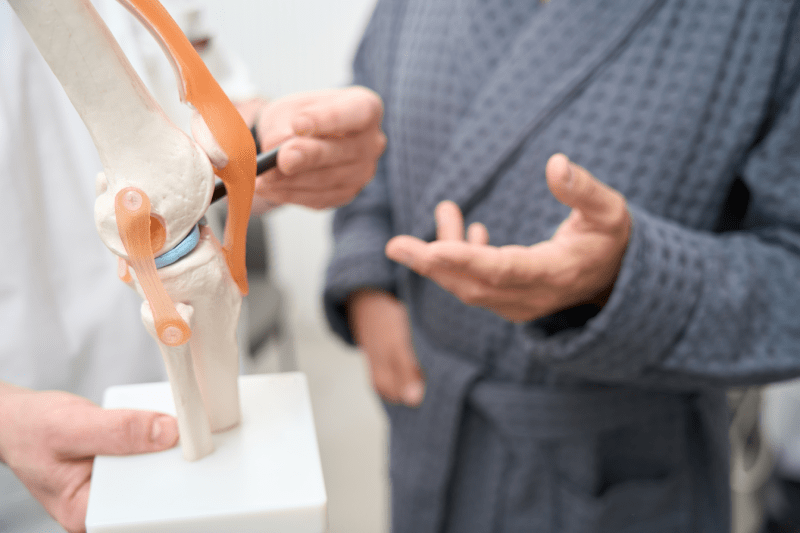What is the average cost of a hip replacement surgery abroad?
The cost of a hip replacement surgery abroad varies greatly depending on the country and clinic. On average, the cost of such a surgery ranges from $20,000 to $50,000 in developed Western countries, while it can be between $7,000 and $15,000 in countries like Turkey, India, and Poland. This price difference is due to the living costs, healthcare systems, and surgeons’ fee policies of the countries. The prices are often offered in packages that cover all stages of the surgery.
Which country offers the cheapest hip replacement surgery?
The most affordable countries for hip replacement surgery are generally considered to be India, Mexico, Poland, and Turkey. These countries can offer competitive prices thanks to their low-cost labor, affordable living expenses, and developing medical tourism infrastructure. For example, in India and Turkey, it is possible to have surgery for much less, even half the price, of the cost in the USA or the UK. However, the quality of the clinic and the surgeon should be taken into consideration in addition to the price.
What is included in the price of surgery abroad?
The prices offered for hip replacement surgery abroad are generally all-inclusive packages. These packages cover the surgeon’s fee, hospital stay expenses, the anesthesiologist’s fee, the cost of the prosthesis used during the surgery, post-operative physiotherapy sessions, and in some cases, the patient’s transfer and accommodation costs. Such packages help the patient plan their travel and treatment process more easily and prevent unexpected additional costs.
Is it safe to have surgery abroad?
Having a hip replacement surgery abroad is quite safe if the right clinic and surgeon are chosen. Many countries, especially those that stand out in medical tourism, have modern hospitals with international accreditations and experienced surgeons who provide high-quality healthcare services. However, it is vital to do research and choose clinics with reliable references. Checking if the hospital and surgeon comply with international standards (such as JCI) is an important way to ensure safety.
What are the advantages of having surgery abroad?
The biggest advantage of having a hip replacement surgery abroad is the cost savings. Many hospitals can offer services of the same quality at much lower prices compared to Western countries. In addition, waiting times for surgery are shorter in some countries, which allows patients to receive treatment faster. Combining the surgery with a holiday and a recovery process can also be an attractive option.
What are the disadvantages of having surgery abroad?
There are also some disadvantages to having surgery abroad. The most important disadvantages include travel stress, the language barrier, the necessity of traveling again for post-operative follow-up appointments, and the difficulty of reaching the surgeon in case of complications. In addition, it can be difficult to be aware of the legal regulations and patient rights in different countries. It is essential to do extensive research to minimize these risks.
Who is the most suitable candidate for hip replacement surgery?
The most suitable candidate for hip replacement surgery is an individual who is in good general health and whose daily life is severely affected by joint pain and loss of function. It is generally a surgery recommended for patients aged 50 and over, but it can also be performed on younger patients in cases of trauma or other medical conditions. It is important that candidates have the physical and psychological ability to adapt to the post-operative physiotherapy process.
How does the pre-operative consultation process work?
For patients considering surgery abroad, pre-operative consultations are usually held on online platforms. Patients send their medical images such as X-rays or MRIs to the surgeon and get information about the details of the surgery, potential risks, and expectations through a video call. These meetings are of vital importance to increase the patient’s trust in the surgeon and facilitate the decision-making process.
How long does the surgery take?
The duration of hip replacement surgery varies depending on the surgeon’s experience, the technique used, and the patient’s condition. On average, a single hip replacement surgery can take between 1 and 2 hours. In some cases, more complex cases or revision surgeries may take longer. An experienced surgeon reduces the risk of complications by keeping the duration of the surgery as short as possible.
How long is the hospital stay after the surgery?
The hospital stay after hip replacement surgery varies according to the patient’s general health condition and the clinic’s protocols. Patients usually stay in the hospital for 2 to 4 days. During this period, nurses and physiotherapists support the patient’s early mobilization and help them take their first steps. Some modern techniques allow patients to be discharged more quickly.
How does the post-operative recovery process work?
The post-operative recovery process is felt significantly in the first few weeks, but full recovery can take between 6 months and 1 year. For the first 2-3 weeks, it may be necessary to use a walker or crutches. Physiotherapy is of critical importance to strengthen the muscles and regain joint mobility. Patients can return to their normal activities a few months after the surgery, but heavy sports should be avoided.
What is the level of pain after the surgery?
The level of pain after hip replacement surgery can be controlled very well thanks to modern surgical techniques and pain management methods. The pain felt immediately after the surgery can be easily managed with painkillers prescribed by the doctor. There may be a slight discomfort and pain in the first few weeks, but this condition decreases over time. Most patients state that their chronic pain before the surgery is completely gone after the surgery.
What types of hip prostheses are used?
Today, prostheses made of different materials are used in hip replacement surgeries. The most commonly used are metal-polyethylene, ceramic-polyethylene, and ceramic-ceramic combinations. The choice of prosthesis is determined by the surgeon based on the patient’s age, activity level, and bone structure. Ceramic-ceramic prostheses are more frequently preferred in young and active patients because they have a longer lifespan, while metal-polyethylene prostheses are more traditional.

Will there be a scar after the surgery?
Yes, there will be a scar on the area where the surgery was performed after a hip replacement surgery. However, surgeons usually make small incisions and use aesthetic suturing techniques to minimize the scar. The scar may differ depending on the technique used for the surgery. These scars fade over time and become less visible, but they do not disappear completely.
Does the language barrier pose a problem in surgeries abroad?
The language barrier can pose a problem in surgeries abroad, especially in communication and post-operative follow-up processes. However, many hospitals that stand out in medical tourism employ staff and interpreters who speak English or other common languages to serve international patients. It is important to clarify this issue and arrange for an interpreter by contacting the clinic before the surgery.
When should I travel abroad for surgery?
Traveling abroad for hip replacement surgery should be planned after all your medical documents (X-rays, MRIs, blood tests) have been reviewed by your surgeon before the surgery. It is generally recommended to go a few days before the surgery to have time for final checks and to rest. Staying for a few weeks after the surgery is important for the surgeon to follow you and for you to start your physiotherapy process.
What should I pay attention to when choosing a surgeon abroad?
The most important factors you should pay attention to when choosing a surgeon abroad are the surgeon’s experience, area of expertise, and international accreditations. It is important that the surgeon has successfully performed similar operations before, that patient reviews are positive, and that the hospital has accreditations such as JCI, which show that it provides services at international standards. In addition, communication skills and the relationship the surgeon establishes with the patient are also important for building trust.
Is it necessary to lose weight before the surgery?
Yes, reaching your ideal weight or losing excess weight before the surgery is very important for the success of the surgery and the recovery process. Excess weight can increase the risk of anesthesia during the surgery and lead to post-operative complications (infection, blood clotting, etc.). In addition, since there will be less load on the new prosthesis after the surgery, it extends the life of the prosthesis and speeds up the recovery process.
How does post-operative physiotherapy work abroad?
Post-operative physiotherapy abroad is usually one of the services included in the surgery package. The first sessions are given by a physiotherapist while you are in the hospital. After being discharged, clinics usually prepare a rehabilitation plan that the patient can continue in their own country. In some cases, you can work with a physiotherapist recommended by the clinic.
What is the lifespan of a hip prosthesis?
The lifespan of modern hip prostheses varies depending on the material used, the patient’s age, activity level, and general health condition. Generally, the lifespan of a hip prosthesis varies between 15 and 25 years. However, the lifespan of more modern ceramic prostheses can be even longer. To extend the life of the prosthesis, it is important to go for regular doctor check-ups and avoid heavy sports.
When can I start driving after the surgery?
It is generally recommended to wait 4 to 6 weeks before starting to drive after the surgery. This is to ensure that you have fully regained the strength and control of the operated leg. It is important that you have the full ability to make a sudden stop or turn the steering wheel in an emergency. It is best to talk to your doctor and get their approval on this matter.
How are accommodation and transportation organized in surgeries abroad?
Many clinics experienced in medical tourism offer accommodation and transportation services for foreign patients. Generally, airport transfer and a hotel stay near the hospital are included in the package prices. Such organizations make the patients’ travels less stressful. Otherwise, patients have to organize all these logistical details themselves.
Is a visa required for the surgery?
Yes, a visa may be required depending on the country you are traveling to for the surgery. Some countries, such as Turkey, do not require a visa from citizens of many countries or allow online visa (e-visa) applications. However, a Schengen visa may be required for European Union countries or a visa for the USA. You should remember that the visa application process can take time and plan your travel accordingly.
Is air travel safe after hip replacement surgery?
Air travel after the surgery can be done safely with the doctor’s approval and with certain precautions. It is generally recommended to avoid flying within the first few weeks after the surgery. It is important to wear elastic socks and do regular leg exercises during the journey to reduce the risk of blood clotting. Your doctor will give you the most suitable advice according to your travel plan.
What activities should I avoid after the surgery?
During the post-operative recovery process, it is important to avoid certain activities that may damage the new prosthesis. These activities include heavy lifting, running, jumping, or high-impact sports. In addition, you should avoid bending your leg excessively or keeping it in a crossed position as it may increase the risk of the prosthesis dislocating. Your doctor will give you detailed information about the activities you should do and avoid.
In which cases is the surgery not performed?
Hip replacement surgery is postponed or not performed in some cases such as uncontrolled diabetes, serious heart or lung diseases, active infections, or obesity. These conditions can increase the risk of anesthesia during the surgery and lead to post-operative complications. Your doctor will evaluate your general health condition and determine the most suitable time for the surgery.
Is there an age limit for hip replacement surgery?
There is no definitive age limit for hip replacement surgery. The decision for surgery is made based on the patient’s general health condition, pain level, and the effect on their daily quality of life. The lifespan of the prosthesis may be shorter in young patients, while the recovery process may be longer in older patients. Each patient is evaluated individually, and the most suitable treatment plan is determined.
Is swelling normal after the surgery?
Yes, swelling after the surgery is normal and is a part of the recovery process. Swelling can be seen in the operated leg and ankle. This condition decreases over time as the tissues heal and blood circulation returns to normal. It will be beneficial to keep your leg elevated, take regular walks, and do the exercises recommended by your doctor to reduce swelling.
How long should I rest after the surgery?
The rest period after the surgery depends on your personal recovery speed. It is important to rest at home and follow the doctor’s instructions for the first few weeks. It may take a few months to fully recover and return to your normal activities. Avoiding physical activities and giving your body time to heal is of critical importance for the success of the surgery.

How is post-operative follow-up done abroad?
In surgeries abroad, post-operative follow-up usually continues in the patient’s own country. Your surgeon at the clinic prepares a rehabilitation program that you can work with a local physiotherapist. If necessary, you can stay in touch with the hospital through video conferences and consult your surgeon directly. A reliable clinic will support the patient’s follow-up process even after they are discharged.
What medications should I stop taking before the surgery?
Before the surgery, it may be necessary to stop taking medications such as blood thinners (aspirin, ibuprofen, etc.), some vitamin supplements, and herbal medicines. These medications can increase the risk of bleeding during the surgery. It is of vital importance to inform your doctor about all the medications and supplements you are using during the pre-operative consultation. Your doctor will give you clear instructions on which medications to stop and when.
What should I include in the cost of a hip replacement surgery?
When calculating the cost of a hip replacement surgery, you should consider not only the surgery package price but also additional costs such as travel, accommodation, visa, insurance, and post-operative follow-up. In addition, it is important to budget for the assistive equipment (walker, crutches) and medications you may need after the surgery. Calculating all these costs allows you to create a realistic budget.
What symptoms are not normal after the surgery?
While some symptoms are considered normal after the surgery, some may be a sign of a serious condition that requires immediate medical attention. You should consult your doctor immediately if you experience any of the following symptoms: excessive pain, redness, swelling, or discharge in the operated area; high fever; shortness of breath; chest pain; or a noticeable swelling in the leg. These symptoms can be a harbinger of complications such as infection or blood clotting.
Is it necessary to pay attention to nutrition after hip replacement surgery?
Yes, nutrition after the surgery is very important to support the recovery process. It is important to consume foods rich in protein, calcium, and vitamin D for the healing of bones and tissues. Drinking plenty of fluids is necessary to maintain hydration and prevent constipation. Weight control after the surgery is also important to prevent excessive load on the prosthesis.
How are patient rights protected in surgeries abroad?
The rights of patients who have surgery abroad are protected by the laws of the country they are traveling to and the international accreditations of the hospital. Hospitals with international accreditations (such as JCI) are committed to complying with high patient safety and ethical standards. In addition, it is important to read all contracts and documents carefully before the surgery, learn all your rights, and ask all your questions with an interpreter.


